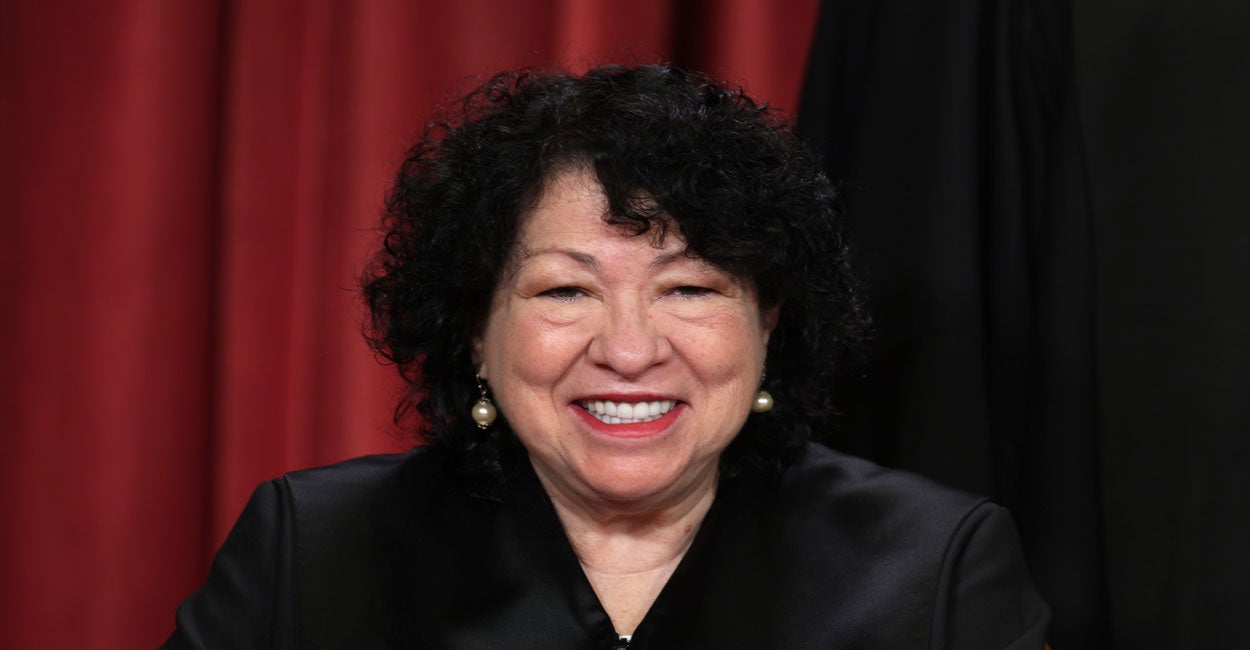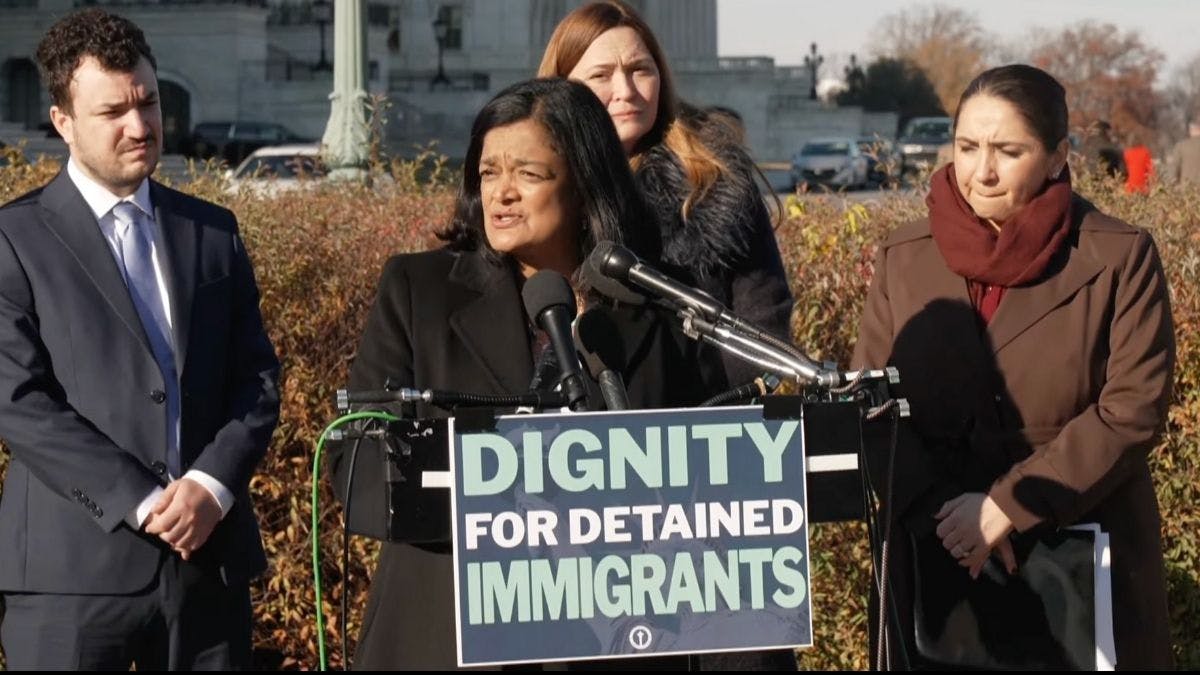Fact-Checking Justice Sotomayor’s Imaginary Birthright Citizenship Cases

Last week, the Supreme Court held oral arguments in Trump v. CASA, Inc., a case that stems from President Donald Trump’s January executive order on birthright citizenship. At this point in the litigation, the court isn’t addressing the constitutionality of the order itself, but instead will resolve an important procedural question over the power of lower federal court judges to issue “nationwide” injunctions.
Nonetheless, during the arguments, Justice Sonia Sotomayor made an assertion about the executive order that grabbed national attention. In an exchange with U.S. Solicitor General John Sauer, Sotomayor insisted the president’s order violates “not just one, but by my count, four established Supreme Court precedents.”
She specifically named the 1898 case of United States v. Wong Kim Ark, which she claimed held that “your parents’ fealty to a foreign sovereign doesn’t defeat your entitlement to citizenship as a child.” She then referred to three other unnamed cases in which the Supreme Court allegedly held that “even if your parents are here illegally, if you’re born here, you’re a citizen.”
Of course, critics of the President’s order immediately jumped on these comments as evidence of its “patently unconstitutional” nature.
Perhaps they should have considered questioning the veracity of a claim made by a justice known to sometimes have a “slippery handle” on facts.
Because, you see, there’s a problem with Sotomayor’s four-case “established precedent”: it doesn’t exist.
Oh, to be clear, the four cases to which she referred are very real. But her characterization of them grossly misrepresents what the Supreme Court held and dramatically overstates the relevance of any of those cases to the specific constitutional questions raised by Trump’s executive order.
Let’s start with Wong Kim Ark. In Sotomayor’s defense, she is hardly the first critic of the president’s order to suggest that this case definitively settled all questions of birthright citizenship by holding that everyone born in the United States is a citizen. But this characterization is far more wishful thinking than reality. From the start, it wrongly presumes that the question before the court in Wong Kim Ark was broadly whether the Fourteenth Amendment confers automatic birthright citizenship on all children born in the United States under virtually all circumstances.
In reality, the scope of the Supreme Court’s inquiry in Wong Kim Ark was remarkably narrow, limited to the almost comically narrow question of “whether a child born in the United States, of parents of Chinese descent, who, at the time of his birth, are subjects of the Emperor of China, but have a permanent domicile and residence in the United States, and are there carrying on business, and are not employed in any diplomatic or official capacity under the Emperor of China” is a citizen by birth under the Fourteenth Amendment.
The Supreme Court’s answer was equally narrow—yes, a child born in the United States of this very specific subset of noncitizen parents is a citizen.
Moreover, the factual background and historical context of the Wong Kim Ark case are essential to understanding why this narrow holding ought not be misconstrued as broadly mandating universal birthright citizenship for U.S.-born children of other classes of aliens.
Wong Kim Ark was born in 1873 in San Francisco to Chinese immigrant parents who were what we would today likely call lawful permanent residents. They operated a well-established San Francisco business for nearly two decades, raising their son, Kim Ark, in the apartment above their storefront on Sacramento Street. During this time, the Wong family was subjected to a series of increasingly restrictive laws intentionally designed to deny lawfully present Chinese aliens any means of officially integrating into American society.
The most egregious of these restrictions effectively stripped from Chinese aliens the inherent and fundamental right of expatriation, solely because of their race. While federal immigration laws provided permanently domiciled white immigrants with a straightforward two-step path to citizenship, no statute similarly provided non-white immigrants like the Wongs with a way to become naturalized citizens.
Worse, under the Chinese Exclusion Act of 1882, Congress formally declared that immigrants of Chinese descent were ineligible for naturalization. No matter how long these Chinese immigrants lawfully lived, worked, and raised their families in the United States, the law declared them to be perpetual subjects of the Chinese emperor.
In short, the Supreme Court reasoned that Congress could prevent lawful permanent resident Chinese immigrants from becoming naturalized citizens, but it could not simultaneously reduce subsequent generations of their U.S.-born-and-raised children to the status of perpetual aliens. This was perfectly consistent with the original purpose of the Fourteenth Amendment, which was intended to rectify an almost identical plight of race-based generational alienage for the U.S.-born descendants of slaves.
But the court didn’t hold that all U.S.-born children of all aliens are citizens. In fact, the Court repeatedly emphasized the lawful and permanent nature of the Wong family’s attachment to this country, suggesting that perhaps it would not reach the same conclusions for the U.S.-born children of other subsets of immigrants who don’t have lawful permanent U.S. residence, or who aren’t barred similarly barred from naturalization but choose not to pursue it.
While Sotomayor is certainly free to draw conclusions about how she thinks Wong Kim Ark ought to apply beyond the scope of its narrow holding, she’s not free to reimagine what the Supreme Court actually said in that case.
It’s unclear which three other cases Sotomayor considers “established precedent” on birthright citizenship, since she didn’t specifically name them. But given her descriptions of the facts in those cases (and their similarity to cases cited by the plaintiffs), she most likely meant United States ex rel. Hintopoulos v. Shaughnessy (1957), INS v. Errico (1966), and INS v. Rios-Pineda (1985).
The Supreme Court in each of those cases indeed made passing references to the U.S.-born children of illegal immigrants in ways that presumed their status as citizens. Nowhere in these opinions, however, did the court directly assess the original meaning of the Citizenship Clause, much less definitively hold that the Constitution required this presumption.
Nor could the court even plausibly have done so in these cases, because none involved questions about the Fourteenth Amendment or the parameters of birthright citizenship.
All three cases revolved around claims made by illegally present aliens that their deportations should be suspended under specific federal laws that allow (and sometimes require) such suspensions where the alien has U.S. citizen family members and meets other prerequisite conditions.
In each case, the government—acting under its own broad interpretation of the Citizenship Clause—chose not to challenge its own underlying presumption that these children were U.S. citizens. In fact, by the time these cases came before the Supreme Court, the government had presumably already treated these U.S.-born children as citizens, granting them social security numbers and allowing their parents to collect welfare benefits on their behalf.
These cases demonstrate only that the Supreme Court won’t unilaterally question a U.S.-born child’s citizenship when the government itself treats the child as a citizen. But just because the federal government’s policy at the time was to presume the citizenship of all U.S.-born children and did not, at that time, challenge the citizenship status it had already de facto bestowed on them, does not mean that the federal government today is barred from giving effect to a narrower interpretation or challenging claims of birthright citizenship for individuals whom it hasn’t already treated as presumptive citizens.
Sotomayor’s mischaracterization of these cases as dispositive “precedent” on the issue of universal birthright citizenship would be easy to laugh off if it weren’t indicative of a larger and more problematic reality. Far too often today, judges and laymen alike are prone to the same bad habit—they take what they believe the law ought to be and mistake it for what the law actually is.
The post Fact-Checking Justice Sotomayor’s Imaginary Birthright Citizenship Cases appeared first on The Daily Signal.
Originally Published at Daily Wire, Daily Signal, or The Blaze
What's Your Reaction?
 Like
0
Like
0
 Dislike
0
Dislike
0
 Love
0
Love
0
 Funny
0
Funny
0
 Angry
0
Angry
0
 Sad
0
Sad
0
 Wow
0
Wow
0













































































